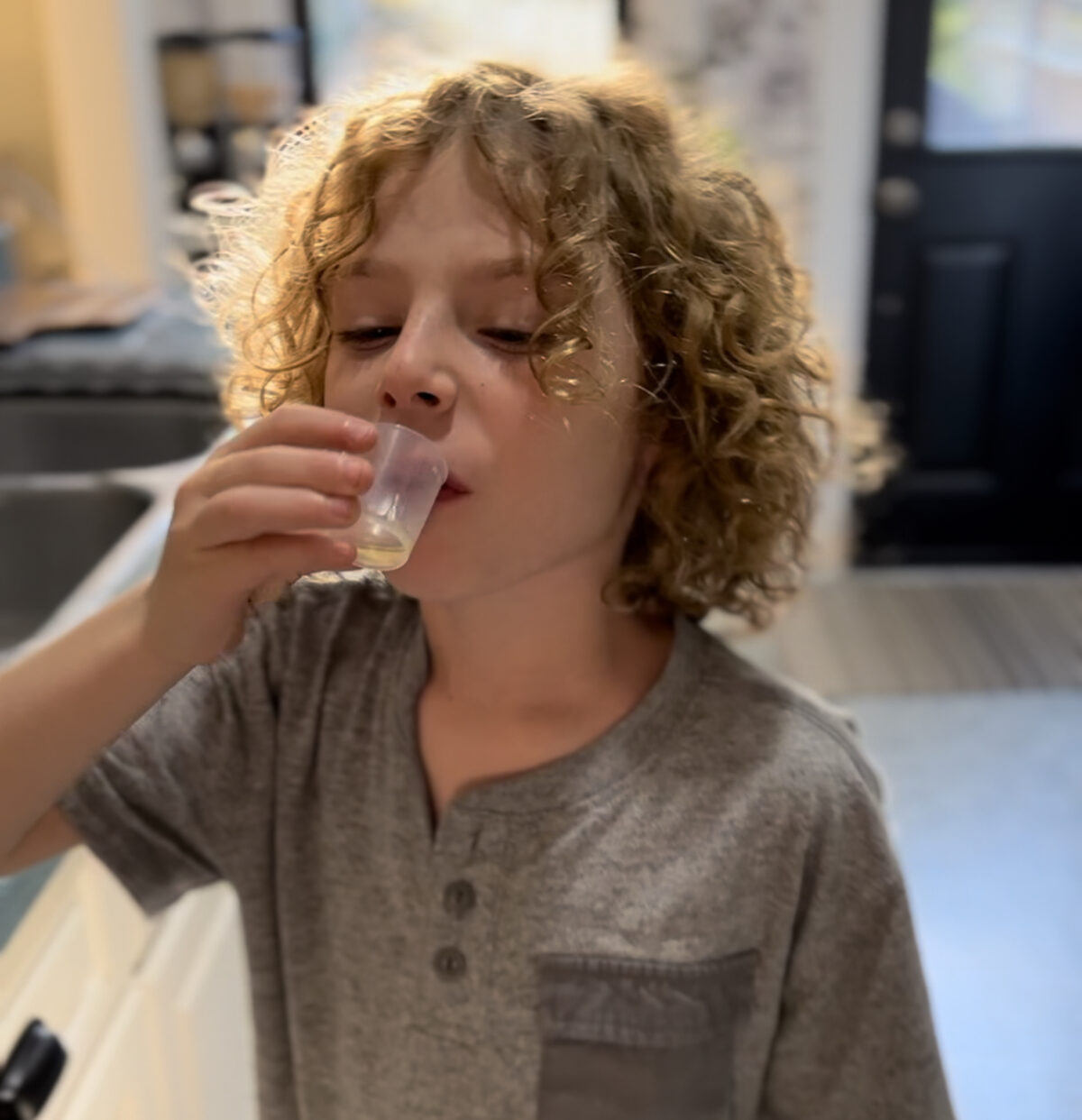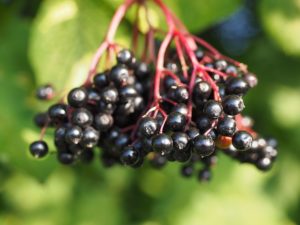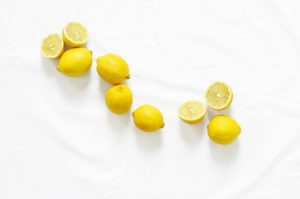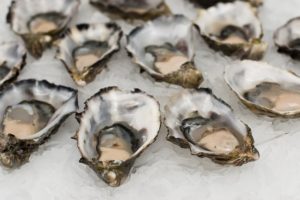Any good rock climber knows that in order to perform at your best, you need to take care of your body. That means eating a nutritious diet, appropriate training, sleeping well and staying hydrated. But it can also mean supplementing your diet with the right things to ensure that your body has everything it needs to climb to new heights. Here are 10 of the best supplements for rock climbing.
CBD
CBD, or cannabidiol, is a compound found in the cannabis plant. Unlike its more famous cousin THC, CBD does not have any psychoactive effects. Instead, it has been shown to offer a variety of health benefits, including reducing anxiety and pain. CBD is also being explored as a treatment for several conditions, including epilepsy and Alzheimer’s disease. CBD oil can be taken orally or applied topically, making it a versatile addition to any medicine cabinet.
For athletes, CBD oil has become an increasingly popular way to manage pain and inflammation. CBD is thought to work by interacting with the body’s endocannabinoid system, which plays a role in regulating pain and inflammation. In one study, rock climbers who took CBD before their climb reported reduced pain and inflammation afterwards. CBD is also being explored as a potential treatment for Delayed Onset Muscle Soreness (DOMS), a type of muscle soreness that can occur after exercise. While more research is needed, CBD oil shows promise as a safe and effective way to manage pain and inflammation for athletes of all levels.
Dose: 60mg after training has shown benefit in muscle recovery
Theanine
Theanine is an amino acid that can be found in tea leaves. It is known to have a calming effect on the mind, and it has been shown to improve focus and concentration. Theanine has also been shown to reduce anxiety levels. For these reasons, theanine has become a popular supplement among rock climbers. While theanine can help to improve focus and cognitive function, it is not a miracle drug. Theanine will not make you a better rock climber overnight. However, it can help to improve your mental state while climbing, making it easier to maintain focus and avoid getting overwhelmed by anxiety. If you are looking for an edge while climbing, theanine may be worth considering.
Dose: 100mg has shown improvements in cognitive function.
Protein
Climbing is a strenuous activity that can lead to muscle soreness and fatigue. Adding a protein powder supplement to your diet can help your muscles recover more quickly so that you can get back on the wall sooner. Protein powder is also helpful in preventing injuries since it helps to repair and build muscle tissue. For optimal effects, it is best to take a protein supplement within one hour after climbing.
Dose: 1.2-1.5 grams/kg or 30-33 grams when combined with athletic training.
Iron
Climbing takes a lot of energy, so it’s important to make sure you’re getting enough iron. Iron helps carry oxygen to your cells, which gives you the energy you need to power through a tough climb. If you’re not getting enough iron, you might start to feel fatigued more easily. The best way to get iron is through food sources like red meat, dark leafy greens, and beans. However, if you’re not getting enough from your diet, you might want to consider taking an iron supplement. Just be sure to talk to your doctor first, as too much iron can be harmful.
Dose: Depends on current iron levels. Blood testing may be required. Consult with your doctor or naturopath.
Magnesium
Magnesium is a mineral that is critical for human health. It is involved in over 300 biochemical reactions in the body, including the metabolism of energy, the regulation of blood sugar, and the formation of bones and teeth. Magnesium is also essential for muscle function, and it helps to relieve muscle cramps. For athletes and people who are physically active, magnesium is especially important. This is because Magnesium helps to maintain electrolyte balance and to reduce exercise-induced inflammation.
Rock climbers can benefit from taking magnesium supplements, as this can help to improve their performance and recovery from climbs. Magnesium can also help to prevent injuries by reducing the risk of cramping. For climbers who are looking to improve their results, magnesium may be a valuable addition to their diet.
Dose: Up to 350mg is generally tolerated well.
Creatine
Creatine is a naturally occurring compound in the body that helps to supply energy to cells. It is popular among climbers because it has been shown to improve power and strength output. This can be helpful when you are trying to send a hard route or when you need to pull yourself up a steep wall. Creatine is also one of the most studied supplements on the market, so you can be confident in its safety and effectiveness.
Dose: 20 grams for 5-7 days has shown improvement in both aerobic and anaerobic performance
Beta-Alanine
Beta-alanine is another amino acid that is popular among athletes because it has been shown to improve performance. It works by increasing the amount of carnosine in muscle cells, which helps to buffer lactic acid buildup. This can delay fatigue, arm pump and help you climb for longer periods of time without getting as tired. Beta-alanine is also relatively safe and has been well-studied, so you can be confident in its effects.
Dose: 2-6.4 grams for 3-12 weeks demonstrated improvements in exercise capacity and performance.
Collagen
Collagen is a structural protein that helps to give tissues their strength and elasticity. It is found throughout the body, including in the skin, bones, and tendons. Collagen plays an important role in rock climbing, as it helps to maintain the strength and integrity of the climbers’ hands and feet. Collagen also helps to protect against injury, as it acts as a shock absorber and can help to reduce the impact of falls. In addition, collagen aids in the healing process, helping to repair tissue damage caused by climbing. As a result, collagen is an essential component of rock climbing. without it, climbers would be at a higher risk of injury and would have a difficult time recovering from falls. Taking daily amounts of collagen through supplementation can help ensure that your body has all the required building blocks for collagen synthesis.
Dose: 10-20 grams daily has shown increases in performance.
Ginseng
Ginseng is an herb that has been used for centuries in traditional Chinese medicine. Today, ginseng is commonly taken as a dietary supplement, and it is also said to have many benefits for athletes and outdoor enthusiasts. Ginseng is thought to improve stamina and endurance, and some climbers even swear by it as a way to boost their performance on the rock. Ginseng is available in many forms, including capsules, teas, and tinctures. If you’re interested in trying ginseng for yourself, be sure to talk to your doctor first, as it can interact with some medications.
Dose: 200mg up to 3 times daily for 12 weeks has been shown to be safe. Panax Ginseng can raise blood pressure so it is important to consult with your doctor or naturopath prior to supplementation.
Caffeine
Caffeine is a popular supplement among athletes in general because it has been shown to improve alertness, focus, and power output. This can be helpful when you are trying to maintain focus while climbing. Caffeine is also relatively safe, but it is important to not overdo it as too much caffeine can lead to side effects like jitters and anxiety.
Dose: 2-10mg/kg has shown improvements in athletic performance. Up to 400mg per day has been shown to be relatively safe for most individuals.
Conclusion
These are just a few of the many different supplements that can be helpful for rock climbing. If you are looking to improve your performance, then you may want to consider adding some of these supplements to your diet. As always, make sure to consult with a doctor before starting any new supplement regimen.
References
Isenmann E, Veit S, Starke L, Flenker U, Diel P. Effects of Cannabidiol Supplementation on Skeletal Muscle Regeneration after Intensive Resistance Training. Nutrients 2021;13(9):3028
Foxe JJ, et al. Assessing the effects of caffeine and theanine on the maintenance of vigilance during a sustained attention task. Neuropharmacology. 2012;62(7):2320-2327
McAdam JS, McGinnis KD, Beck DT, et al. Effect of Whey Protein Supplementation on Physical Performance and Body Composition in Army Initial Entry Training Soldiers. Nutrients. 2018;10(9)
McNaughton LR, Dalton B, Tarr J. The effects of creatine supplementation on high-intensity exercise performance in elite performers. (abstract) Eur J Appl Physiol Occup Physiol 1998;78:236-40
Hobson RM, Saunders B, Ball G, et al. Effects of ß-alanine supplementation on exercise performance: a meta-analysis. Amino Acids 2012;43:25-37
Jendricke P, Kohl J, Centner C, Gollhofer A, König D. Influence of specific collagen peptides and concurrent training on cardiometabolic parameters and performance indices in women: A randomized controlled trial. Front Nutr. 2020;7:580918.
Sorensen H, Sonne J. A double-masked study of the effects of ginseng on cognitive functions. Curr Ther Res 1996;57:959-68.
Greer F, Friars D, Graham TE. Comparison of caffeine and theophylline ingestion: exercise metabolism and endurance. J Appl Physiol 2000;89:1837-44
The Top 10 Supplements for Kids’ Health
As a parent, you want what’s best for your child. When it comes to their health, you want to make sure they’re getting all the nutrients they need to grow and thrive. But sometimes, despite our best efforts, kids don’t get all the nutrients they need from their diet alone. That’s where supplements come in.
Multivitamin:
A multivitamin is a supplement that contains a variety of vitamins and minerals. It’s a good way to ensure that your child is getting all the essential nutrients they need, even if their diet is lacking in some areas.
Kids often go through periods where they’re less than eager to eat certain foods. This is a normal stage in the development of taste buds, and starting with a good quality multivitamin will help your child get back on track during this time!
Compliance is the most important thing when it comes to giving kids supplements. If your child will not take their vitamins you might as well throw them in the garbage. It’s important to try a few different brands in order to see if your child has a specific preference. A naturopathic doctor with experience in working with kids can be very helpful in choosing a few options.
Some of my most frequently recommended include: SmartyPants Kids Formula, ND Shake for Kids by Orange Naturals, and Kids Multivitamin Liquid spray by Organika.
Probiotic:
Probiotics are live bacteria that are good for gut health. They can help with digestion and absorption of nutrients, and they can also help boost the immune system.
There are many different strains of probiotics and many of them have specific effects for specific conditions. This is another reason why it is important to consult with a Naturopathic doctor before choosing which product is right for your child. Some of my most recommended brands include: Culturelle, BioGaia, Vita Aid, and Genestra.
Fish Oil:
Fish oil is a good source of omega-3 fatty acids, which are important for brain development and heart health.
Omega-3 fatty acids are important for many aspects of health, including brain development and heart health. Research has shown that omega-3 fatty acids may help improve cognitive function in children, as well as protect against certain conditions such as depression and ADHD.
For example, a study published in the journal Scientific Reports found that children who consumed higher amounts of omega-3 fatty acids had better reading comprehension and short-term verbal memory compared to those with lower intakes. Another study published in BMC Public Health reported that children with higher levels of omega-3 fatty acids in their blood were less likely to exhibit symptoms of depression.
Additionally, studies have shown that consuming adequate amounts of omega-3 fatty acids is important for supporting healthy cardiovascular function in children.
For example, one study published in the American Journal of Clinical Nutrition found that higher intakes of fish oil was associated with improved arterial elasticity in adolescents. Overall, there is strong evidence to support the benefits of consuming omega-3 fatty acids for kids, both for brain development and overall health.
Some brands that I frequently recommend are NutraSea, Honibee, Nordic Naturals and Botanica.
Elderberry Syrup:
Elderberry syrup has long been touted as a natural remedy for fighting off colds and flu in both children and adults. This is due, in part, to the high antioxidant and vitamin content of elderberry. Studies have shown that elderberry can help boost the immune system and shorten the duration of cold or flu symptoms.
For example, one study found that elderberry extract was just as effective at reducing the duration of cold symptoms compared to acetaminophen (a common painkiller). Another study showed that taking an elderberry syrup daily during flu season could reduce the risk of developing illness by up to 58%. Overall, these findings suggest that elderberry may be a powerful tool for reducing the risk and severity of colds and flu in both kids and adults.
I often recommend Sambucol as they have independently researched their product for its efficacy.
Magnesium:
There is a growing body of research demonstrating the benefits of magnesium in certain childhood conditions. In particular, studies have shown that magnesium can help prevent and treat asthma, ease symptoms of irritable bowel syndrome, and even reduce symptoms of anxiety and depression.
Additionally, it has been shown to be effective in reducing the risk of osteoporosis later in life, which makes it an important supplement for children who are still growing. Overall, magnesium appears to be a safe and effective way to promote healthy development and overall wellness in children.
Magnesium is important for the body and it can be hard to know which type or salt would work best. Consult with your Naturopath as they will have experience in this area!
Zinc:
One study found that zinc supplements may help to prevent and treat diarrhea in children, which is a common cause of weight loss and malnutrition. Another study showed that zinc can be effective in reducing the frequency of respiratory infections in children, such as colds and flu.
Additionally, research has demonstrated that zinc can be beneficial for wound healing, particularly in patients with diabetes and other conditions that impair circulation.
Overall, these studies suggest that zinc plays an important role in protecting against certain diseases and conditions of childhood, as well as supporting growth and healthy functioning of the immune system.
It is important to speak with your naturopath about how best use zinc because it can lead other nutritional deficiencies if taken long term.
Propolis Spray:
Propolis is a substance made by bees that has antibacterial and anti-inflammatory properties. Propolis has long been known for its antibacterial and anti-inflammatory properties, which make it an excellent tool for boosting immunity and healing wounds.
A number of studies have shown that propolis can be effective in treating a variety of childhood conditions, including colds and flu, ear infections, and skin irritations.
For example, one study found that children treated with propolis showed significant improvement in symptoms of upper respiratory tract infections, such as coughing and fever, within just 3 days of treatment. The antibacterial properties of propolis also make it an effective treatment for ear infections by helping to eliminate the bacteria that cause these infections.
Finally, propolis has been shown to be effective in treating minor skin irritations like eczema or rashes by reducing inflammation and speeding up the healing process. Overall, these findings highlight the powerful benefits of propolis for children’s health and well-being.It’s great for boosting immunity and healing wounds.
I often recommend the propolis spray by Beekeepers Naturals for sore throats.
Vitamin C:
Vitamin C is an essential nutrient for children because it plays a key role in immunity, tissue repair, and collagen production.
Numerous studies have demonstrated that adequate intake of vitamin C can help protect children from a range of health problems, including common colds and respiratory infections.
Additionally, vitamin C is involved in wound healing, which makes it important for children who are frequently active or injured. Furthermore, vitamin C plays a central role in the production of collagen, which is important for supporting healthy skin and connective tissues throughout the body.
Overall, these benefits make it clear that vitamin C is an important nutrient for childhood development and overall health.
Vitamin C is one vitamin that doesn’t really need to be from a specific brand. The most important thing is to find one your child likes to take.
Vitamin D:
There is a growing body of evidence demonstrating the many benefits of vitamin D for children. Studies have shown that adequate levels of vitamin D can help to improve bone health and prevent conditions like osteoporosis later in life.
Additionally, this crucial nutrient plays an important role in immune function, allowing children’s bodies to fight off illnesses and infections more effectively. Furthermore, vitamin D is involved in numerous cellular processes, helping to regulate cell growth and development, maintain proper organ function, and support overall metabolic health.
Overall, maintaining sufficient levels of this key vitamin is essential for promoting optimal health and well-being in children.
There is a lot of differing opinions when it comes to vitamin d dosing in kids. Therefore it is important to speak with your healthcare provider about dosing for children.
Melatonin:
Studies have shown that melatonin can be helpful for children who have difficulty sleeping or have jet lag. This is because it helps to regulate the body’s sleep cycles, allowing kids to fall asleep more easily and stay asleep longer.
Additionally, there is some evidence that melatonin may help reduce the severity of conditions like ADHD and autism, though more research is needed in this area.
Overall, melatonin is considered a safe and effective option for treating sleep disturbances in children, though it should only be used as directed by a healthcare professional.
I have found that melatonin works best when started at a low dose. When choosing your product try to find one that is a maximum of 1mg per dose.
Conclusion:
As parents, we want what’s best for our children. When it comes to their health, we want to make sure they’re getting all the nutrients they need to grow and thrive. Sometimes, however, kids don’t get all the nutrients they need from their diet alone. That’s where supplements come in. A multivitamin, probiotic, fish oil, elderberry syrup, magnesium, zinc, propolis spray, vitamin C, vitamin D, or melatonin can help fill in any gaps in your child’s nutrition and keep them healthy and happy!
The mind body connection
The mind and body are closely connected through thousands of chemical messengers. When we have a mental experience the brain sets off a cascade of neurotransmitters and hormones that affects our body. For instance when we experience joy, our body produces the hormone oxytocin. Oxytocin reduces blood pressure, stress hormone, anxiety and promotes growth and healing. Conversely, when we experience an emotion like sadness this can raise stress hormone, increasing blood pressure and eliciting negative effects on the immune system. Psychotherapy can therefore have a big impact on the health of our body by modifying mental outlook and thus inducing positive chemical messengers to the rest our body. An example is cognitive behavioural therapy, which has well documented success in the treatment of depression, anxiety and stress. https://pubmed.ncbi.nlm.nih.gov/ 31004323/
We can also treat conditions of the mind through our body. In pharmaceutical medicine, drugs like anti-depressants can block the breakdown of the neurotransmitter serotonin. Serotonin is involved in mood and therefore in some individuals boosting serotonin activity can improve mood and decrease anxiety. However, some short falls of pharmaceutical medicine is that it can often cause unwanted side effects and have a narrow therapeutic range; meaning that too little may have no effect and too much can be deadly. There are also issues with dependancy and addiction.
On the other hand nutritional and herbal supplementation can be an effective treatment for depression, stress and anxiety without the same safety concerns as drugs.
Supplementation for depression
Depression is both a physical and emotional condition. We know that depression can impact the reproductive system, immune system and our nervous system. Nutritional deficiencies can arise as a result of long standing depression and can be a precursor in the development of a depressive condition. Deficiencies in vitamin B12, vitamin D and protein are associated with depression. https://pubmed.ncbi.nlm.nih.gov/ 23377209/ In my Toronto clinic we can identify and correct nutritional deficiencies and make a big impact on depressive symptoms.
There is also a lot to be said about the impact of chronic inflammation on brain and mental health. Research has shown that chronic inflammation can increase susceptibility to depression. https:// pubmed.ncbi.nlm.nih.gov/32553197/ At the Toronto clinic we treat inflammation using supplements such as curcumin, omega-3 fatty acids and cannabidiol (CBD). These supplements can improve depressive symptoms through modulation of inflammation.
Furthermore many natural health products like CBD can also impact neurotransmitters (brain messenger chemicals) directly associated with depression. Through the interaction of cannabinoid receptors, 5-HT1A (involved in serotonin regulation) and neurogenesis factors CBD can act similarly to an anti-depressant medication but with less potential for adverse effects. At the Toronto clinic I offer cannabis education and counselling when cannabinoids would benefit a patients condition.
Supplementation for Anxiety
Anxiety disorders are the most common mental illness in the United States effecting close to 20% of the population every year. While genetics play a significant role in the development of an anxiety disorder, biological and environmental factors are pivotal as well. We know that there are often disruptions in serotonin and dopamine, cortisol and adrenaline in anxiety syndromes. A common class of drugs used in the treatment of anxiety are the benzodiazepines (Xanax, Valium, Ativan etc…). Although these medications can be very effective, they often have significant side effects (drowsiness, depression, constipation). Benzodiazepines can also be difficult to stop once started. One of the most significant mechanisms in which anti-anxiety medications work is through the GABA receptor system.
GABA is an inhibitory neurotransmitter, meaning that it helps to calm the nervous system and muscular skeletal system. Benzodiazepines have a very strong effect on GABA receptors making them effective but also potentially dangerous.
Many nutraceutical compounds activate the GABA pathway but with a gentler effect than benzodiazepines. Pharma GABA (GABA produced by bacteria), Passionflower, St. Johns Wort, Taurine, 5-HTP and CBD all have well documented effects on GABA and Serotonin. At the Toronto clinic we use these compounds successfully in the treatment of anxiety syndromes with less potential for adverse effects.https://pubmed.ncbi.nlm.nih.gov/ 11679026/
Supplementation for Stress
Every single human being experiences stress throughout their life. Stress can be a healthy natural process in the right circumstances and at the right time. Stress becomes pathological when it is experienced chronically and without appropriate instigation. Long lasting stress can have detrimental effects on multiple biological systems including the immune system, endocrine system (hormones) and cardiovascular system. https:// www.ncbi.nlm.nih.gov/pmc/articles/PMC5137920/
There are no specific pharmaceutical interventions in the treatment of stress. Benzodiazepines are the most common class of drug prescribed for debilitating stress and as I mentioned in the section on anxiety, benzodiazepines can have significant side effects and issues with dependency.
Since there is a wide spectrum of factors that can cause stress a “one size fits all” approach is not always effective. The naturopathic approach is fundamentally holistic and therefore takes into account mental, emotional and physical stressors. For instance a change in work schedule may be contributing to sleep disruption, leading to insomnia, poor work performance and nutritional disruption.
Furthermore, there is an entire class of nutritional and herbal supplements called adaptogens. Adaptogens have the ability to modulate cortisol (stress hormone) preventing peaks and dips in cortisol levels throughout the day. Overtime treatment with adaptogens facilitate a more balanced cortisol output avoiding periods of hyperactivity and burnout. To my knowledge there are no pharmaceutical drugs that act in a similar way. Some common adaptogens are: Ashwagandha, Rodiola and Siberian Ginseng. Vitamins like Vitamin C and Magnesium can help support adrenal function further helping the body to avoid burnout in periods of prolonged stress. At the Toronto clinic I use these adaptogenic compounds in conjunction with other treatments to provide a safe and effective treatment plan for chronic stress.
The mind can be treated through the body. Pharmaceutical interventions can be effective but often come with safety concerns around adverse effects and dependancy. There are many safe and effective natural approaches to mental health conditions through supplementation. At my Toronto clinic we specialize in developing an individualized plan to help achieve your mental health goals.
Cold and Flu season is here! Now that kids are back to school and the season is changing we should start thinking about preventing colds and flu. As a Naturopathic Doctor part of my job is counseling parents on safe and effective ways to treat and prevent colds and flu for the whole family. Here are 5 things that will help prevent colds and flu and can even help to ameliorate symptoms and shorten duration of an active infection.
-
Probiotics
Probiotics help boost the immune system – Studies have shown that probiotics affect immune cells throughout the body. When certain strains of probiotics are introduced into our intestine they help to repair intestinal cells and they boost production of antimicrobial substances. In one study, 326 children aged 3-5 years were randomly assigned to receive, in double-blind fashion, probiotic supplementation. Treatments were given twice per day in divided doses for 6 months, including the winter season. Compared with placebo, the probiotic group had the following results; fever reduction 53-73%, cough reduction 41-62%, decreased runny nose 28-59%, decreased need for antibiotics 68-82%, reduced absence from school 28-32%.
-
Elderberry
Elderberry extracts inhibit bacteria and viruses – Not only does elderberry syrup taste great, studies have shown that it inhibits the bacteria and viruses associated with common colds and the flu. One study demonstrated that an elderberry liquid extract possesses antimicrobial activity against both streptococci bacteria and influenza viruses. Another study looked at 312 air travellers flying from Australia to an overseas destination. Those travellers who took an elderberry extract before, during and after travel had fewer colds, less sick days and less symptoms.
-
Vitamin C
Vitamin C supports immune cells – Vitamin C is very important for optimal immune system functioning. Vitamin C helps immune cells get to where they need to be, kill pathogens effectively, protect the body from damage and clean up after battling infections. Studies have shown that adequate vitamin C in the blood helps prevent infections, is necessary to fight infections and helps with recovery. The recommended daily intake of vitamin C is 100-200mg/day; however during active infection, the metabolic demand increases and therefore the requirement for vitamin C is likely to be higher. Even in this day and age, vitamin C is the fourth leading nutrient deficiency in North America. Poor diet and increases in free radical exposure due to an unhealthy lifestyle may be contributing factors. Excellent sources of vitamin C are Broccoli, Citrus Fruits and Berries.
-
Zinc
Zinc is essential for immune system communication – The importance of zinc for proper immune function has been well established. Zinc deficiency undoubtedly causes immune system malfunction. The cells of our body are in constant communication. During infection there is a need for effective communication between immune cells in order to get rid of the “bad guys”. Communication happens in the form of chemical messengers and enzymes. Zinc is an essential component of these chemicals and enzymes. As with vitamin C, during active infection our requirement for zinc is likely to increase. Studies have shown that Zinc supplementation during infection can shorten the duration of the illness. Excellent dietary sources of zinc include: Meat, Shellfish, Legumes, Nuts and Seeds. Supplementation may be important with a vegan or vegetarian diet.
-
Vitamin D
Vitamin D is the supervisor of the immune system –Vitamin D has many functions in the body, and receptors for vitamin D can be found on many different tissues. One important function for vitamin D is in the modulation of our immune system. Studies have suggested that vitamin D is able to both calm down and rev-up the immune system according to what our body needs it to do. This is why Vitamin D is thought to be as important in autoimmune disorders as it is in infections.
Vitamin D deficiency can cause the immune system to behave erratically. Unfortunately in Canada we have one of the highest incidences of vitamin D deficiency in the world. Our primary source of vitamin D is from sunlight and therefore supplementation becomes important especially during the winter months. Studies have shown that there is a higher incidence of upper respiratory tract infections in athletes who are deficient in the vitamin and who train in the wintertime. Supplementation had preventative and symptom reducing effects. Aside from sunlight, some dietary sources of vitamin D are: fortified foods, fatty fish, beef liver, egg yolks and cheese.
Even vitamins and minerals at high dosages can be dangerous, especially in children. It is always recommended to consult with a health care professional, such as a Naturopathic Doctor, before supplementing on your own.
[button size=”btn-large” link=”https://doctorshawn.ca/contact-us/” target=”_blank” ]Book an appointment today![/button]
Leyer, GJ et al. Probiotic effects on cold and influenza-like symptom incidence and duration in children. Pediatrics 2009; 124-179. Walker, WA. Mechanisms of action of probiotics. Clin Infect Dis. 2008; 46 (Suppl2): S87-91.
Curr Opin Gastroenterol. 2011 October ; 27(6): 496–501. doi:10.1097/MOG.0b013e32834baa4d. Probiotics and immune health Fang Yana and D.B. Polkb,c,d
Elderberry Supplementation Reduces Cold Duration
and Symptoms in Air-Travellers: A Randomized,
Double-Blind Placebo-Controlled Clinical Trial Evelin Tiralongo 1,2, *, Shirley S. Wee 2,3 and Rodney A. Lea 4 Received: 8 February 2016; Accepted: 18 March 2016; Published: 24 March 2016
Krawitz et al. BMC Complementary and Alternative Medicine 2011, 11:16
http://www.biomedcentral.com/1472-6882/11/16
Inhibitory activity of a standardized elderberry
liquid extract against clinically-relevant human
respiratory bacterial pathogens and influenza A
and B viruses Christian Krawitz1†, Mobarak Abu Mraheil1†, Michael Stein2, Can Imirzalioglu1, Eugen Domann1, Stephan Pleschka2*,
Torsten Hain1*
Vitamin C and Immune Function Anitra C. Carr 1, * and Silvia Maggini 2
1 Department of Pathology, University of Otago, Christchurch, P.O. Box 4345, Christchurch 8140, New Zealand
2 Bayer Consumer Care Ltd., Peter-Merian-Strasse 84, 4002 Basel, Switzerland; silvia.maggini@bayer.com* Correspondence: anitra.carr@otago.ac.nz; Tel.: +643-364-0649 Received: 21 September 2017; Accepted: 31 October 2017; Published: 3 November 2017
Biofactors. 2014 Jan-Feb;40(1):27-40. doi: 10.1002/biof.1114. Epub 2013 Jun 27.Zinc signals and immune function. Haase H1, Rink L.
Cochrane Database Syst Rev. 2013 Jun 18;(6):CD001364. doi: 10.1002/14651858.CD001364.pub4. Zinc for the common cold.
Vitamin D3 Supplementation Reduces the Symptoms
of Upper Respiratory Tract Infection during Winter
Training in Vitamin D-Insufficient Taekwondo
Athletes: A Randomized Controlled Trial Hyun Chul Jung 1 , Myong-Won Seo 2 , Sukho Lee 3 , Sung Woo Kim 2 and Jong Kook Song 2, * 1 Department of Kinesiology, College of Health Sciences, University of Louisiana at Monroe, 700 University
Avenue, Monroe, LA 71209, USA; jung@ulm.edu
2 Department of Taekwondo, College of Physical Education, Kyung Hee University, 1732 Deokyoungdaero, Giheung-gu, Yongin-si, Gyeonggi-do 17014, Korea; smilly1004@khu.ac.kr (M.-W.S.); kswrha@khu.ac.kr (S.W.K.)
3 Department of Counseling, Health, and Kinesiology, College of Education and Human Development,Texas A&M University-San Antonio, One University Way, San Antonio, TX 78224, USA; slee@tamusa.edu* Correspondence: jksong@khu.ac.kr; Tel.: +82-31-201-2708 Received: 2 August 2018; Accepted: 10 September 2018; Published: 14 September 2018
Mechanisms Underlying the Regulation of Innate and
Adaptive Immunity by Vitamin D Ran Wei and Sylvia Christakos *
Received: 25 June 2015 ; Accepted: 15 September 2015 ; Published: 24 September 2015 Department of Microbiology, Biochemistry and Molecular Genetics, New Jersey Medical School, Rutgers, the State University of New Jersey, 185 South Orange Ave, Newark, NJ 07103, USA; weira@njms.rutgers.edu
* Correspondence: christak@njms.rutgers.edu; Tel.: +973-972-4033; Fax: +973-972-5594












